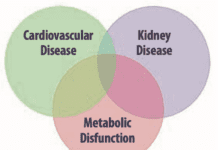If youre taking selenium supplements in hopes of benefiting from the minerals antioxidant properties and promise of cancer protection, a new study may cause you to rethink. In an analysis of data from a British national nutrition survey, people with the highest selenium levels also had higher levels of unhealthy cholesterol.Saverio Stranges, MD, PhD, of the University of Warwick and colleagues, including Tufts Jos M. Ordovas, PhD, compared levels of selenium and lipids in the blood of 1,042 participants in the National Diet and Nutrition Survey. Nearly half the participants reported taking dietary supplements.Those with the highest selenium levels averaged 8% higher total cholesterol and 10% higher in non-HDL cholesterol (all except the good HDL cholesterol). These findings were consistent with previously published reports across different populations, Dr. Stranges noted. However, given the observational, cross-sectional nature of these studies, the causality of this relation is still uncertain and more research is needed to discover the biological mechanisms underlying the selenium-lipid associations.Dr. Stranges and colleagues said the high selenium levels werent exclusively caused by supplementation, but did raise concerns given the recent popularity of selenium supplements.The cholesterol increases we have identified may have important implications for public health, they noted. In fact, such a difference could translate into a large number of premature deaths from coronary heart disease.
| The Selenium Story Selenium is a trace mineral found in foods including Brazil nuts and other nuts, seafood, meat, poultry, oatmeal and other whole grains, eggs and dairy products. The Dietary Reference Intake (DRI) recommendation for adults is 55 micrograms daily. Thats roughly the amount in 4 ounces of sardines or 5 ounces of crabmeat, 1 1/2 cups of wholewheat pasta or 1/2 cup of wheat germ. Selenium is an essential element for metabolism, but clinical selenium deficiency is rarely observed in humans. |
So whats the bottom line on extra selenium? Dr. Stranges and colleagues concluded, We believe that the widespread use of selenium supplements, or of any other strategy that artificially increases selenium status above the level required, is unwarranted at the present time.TO LEARN MORE: Journal of Nutrition, January 2010; abstract at jn.nutrition.org/cgi/content/abstract/ 140/1/81























